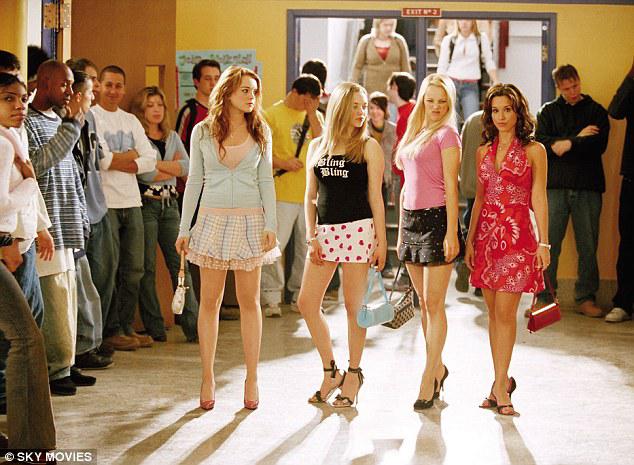
It is bad news for the rebels(叛逆者) without a cause and mean girls. Being a “cool kid” can come back to bite you in later life, researchers have warned.
They found that teens who “acted cool” at school were far more likely to struggle as an adult, and were at higher risk of alcohol and drugs, and more likely to have taken part in criminal activities. Overall, teens who tried to act cool in early adolescence were more likely than their peers who didn’t act cool to experience a range of problems in early adulthood.
“It appears that while so-called cool teens’ behavior might have been linked to early popularity, over time, these teens needed more and more extreme behaviors to try to appear cool, at least to a subgroup of other teens,” says Joseph P. Allen, Hugh P. Kelly Professor of Psychology at the University of Virginia. “So they became involved in more serious criminal behavior and alcohol and drug use as adolescence progressed. These previously cool teens appeared less competent — socially and otherwise — than their less cool peers by the time they reached young adulthood.”
Researchers warn that cool teens are often idolized(偶像化) in popular media, such as James Dean’s Rebel Without a Cause and Tina Fey’s Mean Girls. However, they discovered that seeking popularity and attention by trying to act older than their age may not yield the expected benefits.
Researchers followed 184 teens from age 13, when they were in seventh and eighth grades, to age 23, collecting information from the teens themselves as well as from their peers and parents. The teens attended public school in suburban and urban areas in the southeastern United States and were from racially and ethnically(种族地) diverse backgrounds.
By 22, those once-cool teens were rated by their peers as being less competent in managing social relationships. They were also more likely to have had significant problems with alcohol and drugs, and to have engaged in criminal activities, according to the study.
本时文内容由奇速英语国际教育研究院原创编写,禁止复制和任何商业用途,版权所有,侵权必究!
1.What problems will the “cool kids” experience in early adulthood?
A Becoming dangerous for being involved in making drugs.
B Getting involved in alcohol, drugs, and criminal activities.
C Looking for attention by acting older than their age.
D Being more competent in managing social relationships.
解析:选B。B 细节理解题。根据文章第二段... teens who “acted cool” at school were far more likely to struggle as an adult, and were at higher risk of alcohol and drugs, and more likely to have taken part in criminal activities可知,上学时的“酷孩子”长大后更易涉及嗜酒、吸毒,甚至犯罪等问题。
2.Why do these cool teens engage in extreme behaviors?
A To become more popular.
B To become competent socially.
C To show their backgrounds.
D To act like adults.
解析:选A。A 细节理解题。根据文章第三段...these teens needed more and more extreme behaviors to try to appear cool,结合文章下文可知,耍酷的目的是为了获得别人的追捧,博人眼球。故选A。
3.What can we infer from Paragraph Four?
A Cool teens are usually attractive to their peers.
B Cool teens are often from different culture backgrounds.
C Alcohol and drugs are considered as cool things done by adults.
D Idolizing cool teens in popular media proves to have negative effects.
解析:选D。D 推理判断题。根据文章第四段可知,《无缘的叛逆》和《辣妹》两部电影,将“酷孩子”偶像化了,殊不知这些“酷孩子”形象使青少年误入歧途。故选D。
4.What can be the best title of the passage?
A Cool Teens Idolized in Popular Media.
B Acting Cool to Seek Popularity.
C Cool Kids Fail More When Grow Up.
D Alcohol, Drugs and Criminals.
解析:选C。C 主旨大意题。通读全文可知,本文介绍了对“酷小孩”的跟踪研究,发现上学时期的帅哥辣妹,随着青春期的逝去,更容易误入歧途,染上了嗜酒、吸毒的习惯,有些甚至走上了犯罪道路。故选 C。